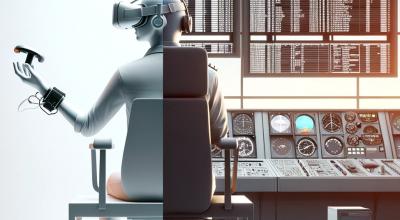Immersion & Interaction
From augmented reality to interaction within totally virtual worlds, digital transformation is pushing the boundaries of the impact of information and communication technologies on our societies and industries. Applications based on immersion and interaction technologies will only be viable if they enable user comfort as close as possible to our natural perception of our real world and with which we interact.

In order to fully integrate the human factor, this work integrates the dimensions of collaboration, perception of presence and co-presence, interaction scripting and cognitive technologies. They also raise the question of the human interface with this virtual representation, anchored somehow in superimposition on the real world. Mixed reality technologies, intimately linked to those of digital twins, enable radical innovation in industrial production: reduction of energy footprint, predictive maintenance, logistics optimization...

At the intersection of Cognitive Science and Human Factors, we define innovations that ensure people are both the driver and end purpose of technological research.

We want to make augmented reality applications possible in complex environments like factories or construction sites. Conformity control, maintenance or assembly assistance, navigation aids, predictive maintenance: our mixed reality expertise can be applied in many industrial use cases.



